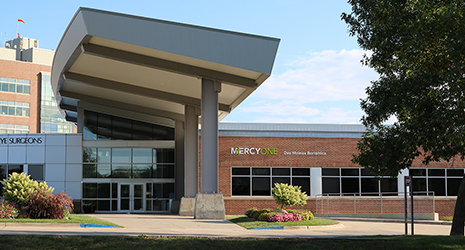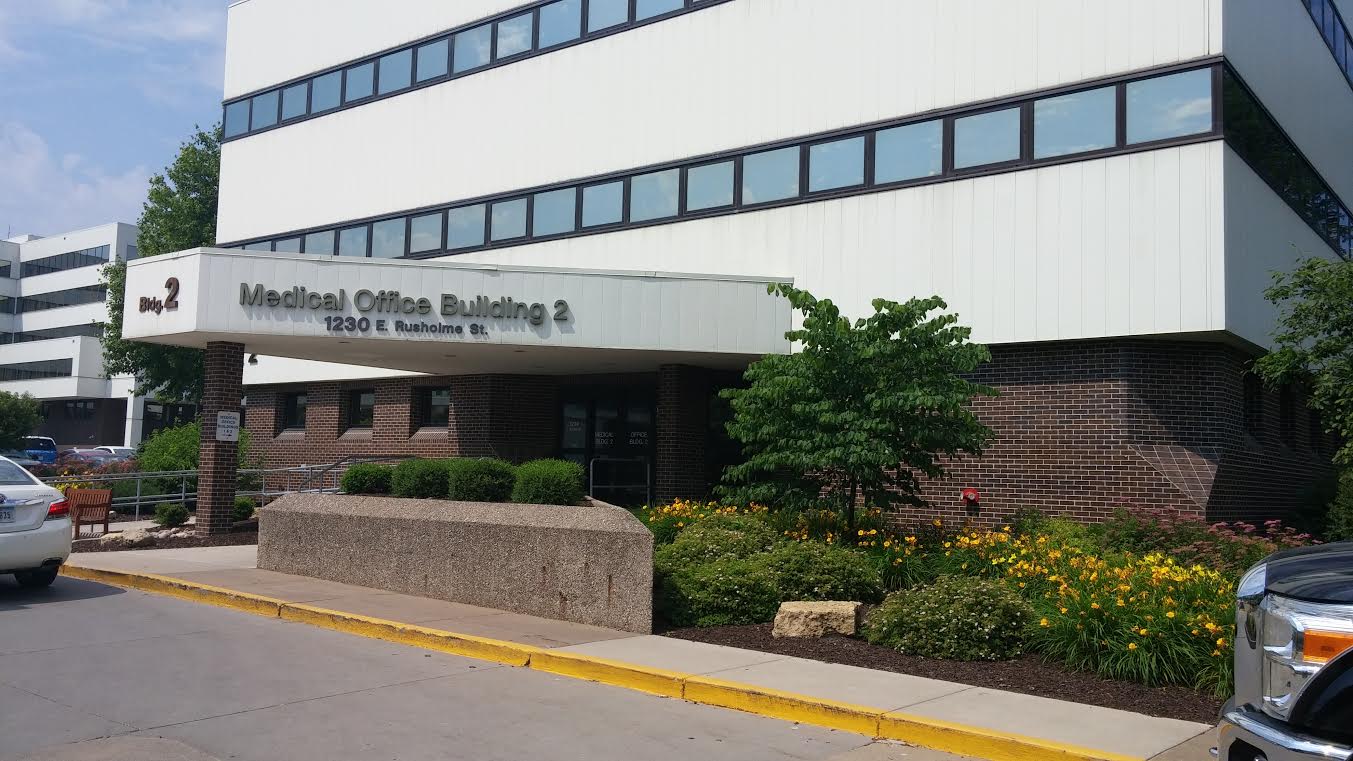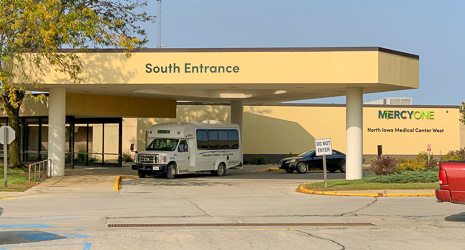If weight loss is part of your health journey, trust the experts at MercyOne. From nutritional counseling and exercise guidance to bariatric surgery and continuous support, our accredited program offers a wide range of treatment options to fit your lifestyle.
Our team of highly trained and experienced providers specialize in delivering safe and effective surgical solutions, tailored to your unique needs and health goals. With a commitment to proven methods and compassionate care, we help you achieve lasting results that go beyond weight loss — helping you stay motived and committed so you can live a healthier and more vibrant life.
Bariatric Surgery is so much more than weight loss.
Weight loss surgery – also known as bariatric surgery – impacts your digestive system and hormones to help you lose weight. Research shows bariatric surgery is among the best methods for long-term, sustained weight loss because many obesity-related medical conditions can be eliminated or significantly improved including:
- Diabetes
- Heart disease
- High blood pressure (Hypertension)
- Pulmonary disease
- Sleep apnea
- Fatty liver disease
Weight-loss surgery success is typically defined as losing 50% or more of your excess body weight and maintaining that loss for at least five years. But success goes beyond the scale — it’s about embracing a healthier lifestyle, building lasting habits, improving overall health and living your best life.
Questions about what bariatric surgery is and whether you qualify? Check out our Frequently Asked Questions to learn some basics about bariatric surgery.
Some insurance companies have reduced Body Mass Index (BMI) thresholds for patients of Asian descent. This change recognizes that health risks can occur at lower BMI levels in Asian populations. Check with your insurance company to see if you qualify.
Bariatric surgery patient stories
Hear from MercyOne bariatric patients about their life changing weight loss surgery experience.
Hear from our patientsIs bariatric surgery right for you?
Not sure if bariatric surgery is the next step in your health journey? Take our free health risk assessment to see if you qualify for surgery!
Health Risk AssessmentSeeking more information?
Curious about bariatric surgery, how to prepare and what to expect, along with valuable tips. Download our comprehensive surgery guide to find out everything you need to know before your procedure.
Download surgery guideConsult a weight-loss expert
Ready to take the next step in your health journey? Request a consultation and we will connect you with one of our MercyOne weight-loss experts.
Request a consultationTypes of procedures
MercyOne bariatric surgeons offer a range of bariatric procedures to meet each patient’s unique health needs, including gastric bypass, gastric sleeve and conversion surgery. These procedures can be performed using robotic-assisted, laparoscopic or open surgical techniques.
Gastric Bypass
Gastric bypass works in two ways: by restricting large amounts of food and through the malabsorption (difficulty absorbing) of nutrients from food.
Patients simply can't eat as much as they did before surgery, because this new, small pouch has a lessened capacity to hold food. Because most of the stomach and some of the small intestine has been bypassed, some of the nutrients and calories in your foods will not be absorbed. Additionally, the stomach can now only hold a few ounces of food at a time, causing significant weight loss.
Gastric bypass surgery is commonly performed laparoscopically, which results in is shorter recovery times and less postoperative pain.
Gastric Sleeve
The sleeve gastrectomy, also known as a gastric sleeve procedure, works to help reduce the size of the stomach and reduce the hormones that cause you to feel hunger. An estimated 70-80% of the stomach is removed and no intestines are bypassed. This procedure avoids complications such as dumping syndrome and has less risk of intestinal obstructions and vitamin or mineral deficiencies.
Sleeve gastrectomy is the most common procedure with less risk of potential complications.
Robotic bariatric surgery
Although it’s called “robotic surgery,” your surgeon operates the surgical system which features surgical arms with tiny wristed instruments that bend and rotate 360 degrees, far greater than the human hand. With robotic surgery, you may have less pain, scarring, blood loss and risk of infection.
Revision and conversion surgery
For post-surgery patients who may have experienced poor weight loss, weight regain or complications, they may be a candidate for revision or conversion surgery to help them meet their weight loss goals.
For a successful conversion surgery, patients will explore and address barriers that prevented success with their original weight loss surgery. Through these conversations, we can help patients manage their routine, strategies and nutrition plans for a new lifestyle and long-term success.
*Bariatric surgery procedures available at MercyOne are location specific. Ask your surgeon what treatment option is right for you.
Set yourself up for success
Weight-loss surgery is a life-changing step—and mental preparation is just as important as physical readiness. Here are a few ways to set yourself up for success:
- Understand the process and what to expect before, during and after weight-loss surgery.
- Talk to people who have had weight-loss surgery.
- Start a journal about your experience. Reflect on where you are now, the challenges you face, and what you hope to gain—physically and emotionally—after surgery.
- Ask your loved ones for a letter of support. It helps to know you have people behind you can make a big difference throughout your journey.
- Bring a support person with you to attend appointments who can listen, ask questions, and be by your side every step of the way.
- Find your community through a support group.
Non-surgical weight loss options
We are committed to your success. Surgery is not always the right option for your care. We also offer non-surgical weight loss options that require a combination diet of high protein, low fat and low carbohydrates, along with consistent exercise, and if needed, weight loss medication.
Insurance Information
It’s important to fully understand your insurance benefits before making your final decision about bariatric surgery. Insurance varies by carrier and requires preauthorization. Many insurance companies offer coverage because of the health benefits enjoyed by many patients, reducing their dependencies on medication and in some cases, eliminating chronic conditions. Self-pay is an option, and unless you are paying cash for this elective procedure, we will help you gain prior authorization from your insurance company before scheduling your surgery.
Providers and Locations
Provider Ratings










